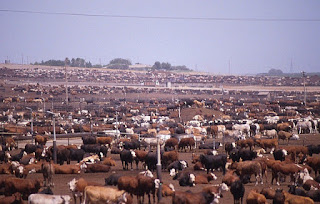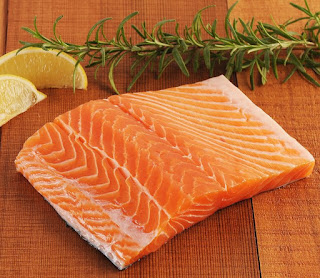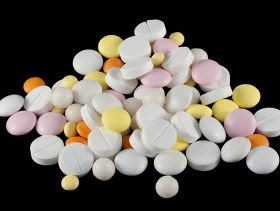 The American Academy of Pediatrics (AAP) argues that unnecessary use of antibiotics in livestock is fueling drug-resistant, life-threatening infections in humans, particularly young children. .
As reported before, the vast majority of antibiotics used in the US go to agriculture and aquaculture—about 80 percent of total tonnage, to be exact. Those drugs are often given to livestock to fatten them up or prevent future illness. Such doses of drugs, many of which have crossovers in human medicine, can spur drug-resistant microbes that may make their way off the farm and spread to food or share their drug-resistant genes with other microbes, the AAP noted.
More than 2 million people in the US catch drug-resistant infections each year, resulting in 23,000 deaths, according to the Centers for Disease Control and Prevention. The agency does not report how many of those infections and deaths are in children. However, previous research has found that the incidence of some types of drug-resistant infections are increasing in children nationwide.
Additionally, the AAP notes that the CDC’s data on foodborne disease incidence shows that kids under 5 years of age are often most at risk. In particular, the AAP’s technical report notes that common foodborne drug-resistant infections in kids include those caused by Salmonella, Campylobacter and Methicillin-resistant Staphylococcus aureus (MRSA)
Kids may be exposed to farm-borne drug-resistant microbes from contact with livestock, food, and environmental sources, such as surfaces in homes and supermarkets.The AAP recommends that livestock producers only give antibiotics to animals when they are sick.Read more here; http://arstechnica.com/science/2015/11/pediatricians-say-farm-use-of-antibiotics-harm ofs-children/
The American Academy of Pediatrics (AAP) argues that unnecessary use of antibiotics in livestock is fueling drug-resistant, life-threatening infections in humans, particularly young children. .
As reported before, the vast majority of antibiotics used in the US go to agriculture and aquaculture—about 80 percent of total tonnage, to be exact. Those drugs are often given to livestock to fatten them up or prevent future illness. Such doses of drugs, many of which have crossovers in human medicine, can spur drug-resistant microbes that may make their way off the farm and spread to food or share their drug-resistant genes with other microbes, the AAP noted.
More than 2 million people in the US catch drug-resistant infections each year, resulting in 23,000 deaths, according to the Centers for Disease Control and Prevention. The agency does not report how many of those infections and deaths are in children. However, previous research has found that the incidence of some types of drug-resistant infections are increasing in children nationwide.
Additionally, the AAP notes that the CDC’s data on foodborne disease incidence shows that kids under 5 years of age are often most at risk. In particular, the AAP’s technical report notes that common foodborne drug-resistant infections in kids include those caused by Salmonella, Campylobacter and Methicillin-resistant Staphylococcus aureus (MRSA)
Kids may be exposed to farm-borne drug-resistant microbes from contact with livestock, food, and environmental sources, such as surfaces in homes and supermarkets.The AAP recommends that livestock producers only give antibiotics to animals when they are sick.Read more here; http://arstechnica.com/science/2015/11/pediatricians-say-farm-use-of-antibiotics-harm ofs-children/
Agribusiness, Agriculture, Veterinary Medicine, Cassava, Garri, food security, Agritech and the Red Meat Value Chain.
Saturday, November 21, 2015
AGRIBUSINESS: INDISCRIMINATE USE OF ANTIBIOTICS IN FARM ANIMALS AFFECTING KIDS.
 The American Academy of Pediatrics (AAP) argues that unnecessary use of antibiotics in livestock is fueling drug-resistant, life-threatening infections in humans, particularly young children. .
As reported before, the vast majority of antibiotics used in the US go to agriculture and aquaculture—about 80 percent of total tonnage, to be exact. Those drugs are often given to livestock to fatten them up or prevent future illness. Such doses of drugs, many of which have crossovers in human medicine, can spur drug-resistant microbes that may make their way off the farm and spread to food or share their drug-resistant genes with other microbes, the AAP noted.
More than 2 million people in the US catch drug-resistant infections each year, resulting in 23,000 deaths, according to the Centers for Disease Control and Prevention. The agency does not report how many of those infections and deaths are in children. However, previous research has found that the incidence of some types of drug-resistant infections are increasing in children nationwide.
Additionally, the AAP notes that the CDC’s data on foodborne disease incidence shows that kids under 5 years of age are often most at risk. In particular, the AAP’s technical report notes that common foodborne drug-resistant infections in kids include those caused by Salmonella, Campylobacter and Methicillin-resistant Staphylococcus aureus (MRSA)
Kids may be exposed to farm-borne drug-resistant microbes from contact with livestock, food, and environmental sources, such as surfaces in homes and supermarkets.The AAP recommends that livestock producers only give antibiotics to animals when they are sick.Read more here; http://arstechnica.com/science/2015/11/pediatricians-say-farm-use-of-antibiotics-harm ofs-children/
The American Academy of Pediatrics (AAP) argues that unnecessary use of antibiotics in livestock is fueling drug-resistant, life-threatening infections in humans, particularly young children. .
As reported before, the vast majority of antibiotics used in the US go to agriculture and aquaculture—about 80 percent of total tonnage, to be exact. Those drugs are often given to livestock to fatten them up or prevent future illness. Such doses of drugs, many of which have crossovers in human medicine, can spur drug-resistant microbes that may make their way off the farm and spread to food or share their drug-resistant genes with other microbes, the AAP noted.
More than 2 million people in the US catch drug-resistant infections each year, resulting in 23,000 deaths, according to the Centers for Disease Control and Prevention. The agency does not report how many of those infections and deaths are in children. However, previous research has found that the incidence of some types of drug-resistant infections are increasing in children nationwide.
Additionally, the AAP notes that the CDC’s data on foodborne disease incidence shows that kids under 5 years of age are often most at risk. In particular, the AAP’s technical report notes that common foodborne drug-resistant infections in kids include those caused by Salmonella, Campylobacter and Methicillin-resistant Staphylococcus aureus (MRSA)
Kids may be exposed to farm-borne drug-resistant microbes from contact with livestock, food, and environmental sources, such as surfaces in homes and supermarkets.The AAP recommends that livestock producers only give antibiotics to animals when they are sick.Read more here; http://arstechnica.com/science/2015/11/pediatricians-say-farm-use-of-antibiotics-harm ofs-children/
THE FIRST GM FOOD ANIMAL GETS APPROVAL.; THE ATLANTIC SALMON.
 After two decades of deliberation, the USA's Food and Drug Administration has approved the first ever genetically engineered food animal, a fast-growing Atlantic Salmon called AquAdvantage salmon. The modified salmon are safe to eat, equally nutritious as other salmon, and should pose no threat to the environment.The Atlantic salmon are modified to carry a growth hormone gene from Chinook salmon. The gene is further engineered to be under the control of a tiny bit of DNA, called a promoter, from the eel-like ocean pout fish. In general, DNA promoters are non-coding sequences that help control the expression level of a gene—how much protein product is synthesized from the gene. With the engineered promoter boosting hormone production, the modified salmon grow to market-size in about half the time of conventional Atlantic salmon.
The long approval process, the FDA assessed the nutritional profiles and hormone levels, comparing the modified fish to unmodified farm-raised Atlantic salmon. The agency found no significant differences.Read more here;http://arstechnica.com/science/2015/11/fda-approves-first-gmo-food-animal-atlantic-salmon/
After two decades of deliberation, the USA's Food and Drug Administration has approved the first ever genetically engineered food animal, a fast-growing Atlantic Salmon called AquAdvantage salmon. The modified salmon are safe to eat, equally nutritious as other salmon, and should pose no threat to the environment.The Atlantic salmon are modified to carry a growth hormone gene from Chinook salmon. The gene is further engineered to be under the control of a tiny bit of DNA, called a promoter, from the eel-like ocean pout fish. In general, DNA promoters are non-coding sequences that help control the expression level of a gene—how much protein product is synthesized from the gene. With the engineered promoter boosting hormone production, the modified salmon grow to market-size in about half the time of conventional Atlantic salmon.
The long approval process, the FDA assessed the nutritional profiles and hormone levels, comparing the modified fish to unmodified farm-raised Atlantic salmon. The agency found no significant differences.Read more here;http://arstechnica.com/science/2015/11/fda-approves-first-gmo-food-animal-atlantic-salmon/
Resistance to 'Last-Resort' Antibiotic Found in China
 CHINA - Scientists in China have found increased levels of resistance to an antimicrobial drug used when other drugs have failed, according to a report in the journal Lancet Infectious Diseases.
The scientists were conducting routine surveillance for antibiotic resistance in E. coli when they found the resistant specimen in a pig.
They also found on further investigation that the type of resistance carried can be easily transferred to other bacteria.
The resistance gene was found in 15 per cent of E. coli collected from raw meat samples, 21 per cent of samples from animals and 1 per cent of samples from inpatients with infection.The scientists said that urgent global action was needed to fight antimicrobial resistance.Read more ; http://www.thepoultrysite.com/poultrynews/36184/resistance-to-lastresort-antibiotic-found-in-china/
CHINA - Scientists in China have found increased levels of resistance to an antimicrobial drug used when other drugs have failed, according to a report in the journal Lancet Infectious Diseases.
The scientists were conducting routine surveillance for antibiotic resistance in E. coli when they found the resistant specimen in a pig.
They also found on further investigation that the type of resistance carried can be easily transferred to other bacteria.
The resistance gene was found in 15 per cent of E. coli collected from raw meat samples, 21 per cent of samples from animals and 1 per cent of samples from inpatients with infection.The scientists said that urgent global action was needed to fight antimicrobial resistance.Read more ; http://www.thepoultrysite.com/poultrynews/36184/resistance-to-lastresort-antibiotic-found-in-china/
HORSE RESCUE AFTER DAM BURST!!!
SMUGGLING OF STAR TORTOISE FROM INDIA.


 A large-scale network,supported by high international demand for exotic pets, is causing extreme suffering to the animals and threatening the survival of the star tortoise. In one site alone, at least 55,000 tortoises were poached from the wild in one year,for centuries, in rural parts of India, star tortoises (Geochelone elegans) have been traditionally kept as pets in many homes, their owners believing that they bring good luck and fortune. The unique star-like yellow pattern on their shell is making them an increasingly popular target for illegal wildlife trade.The number of tortoises being smuggled is staggering. Wildlife experts have estimated more than 50,000 are illegally collected from just one group of villages each year alone.After being transported to eastern India, the tortoises are shipped off to other Asian countries like Thailand, Malaysia, Singapore and China.read more about the illegal trade here;http://www.theguardian.com/environment/gallery/2015/nov/20/fading-stars-indias-illegal-tortoise-trade-in-pictures
A large-scale network,supported by high international demand for exotic pets, is causing extreme suffering to the animals and threatening the survival of the star tortoise. In one site alone, at least 55,000 tortoises were poached from the wild in one year,for centuries, in rural parts of India, star tortoises (Geochelone elegans) have been traditionally kept as pets in many homes, their owners believing that they bring good luck and fortune. The unique star-like yellow pattern on their shell is making them an increasingly popular target for illegal wildlife trade.The number of tortoises being smuggled is staggering. Wildlife experts have estimated more than 50,000 are illegally collected from just one group of villages each year alone.After being transported to eastern India, the tortoises are shipped off to other Asian countries like Thailand, Malaysia, Singapore and China.read more about the illegal trade here;http://www.theguardian.com/environment/gallery/2015/nov/20/fading-stars-indias-illegal-tortoise-trade-in-pictures
Friday, November 20, 2015
Pet owners blamed for increasing risk of MRSA and E.coli by not following animal medicine instructions.
Pet owners who fail to follow their vet’s advice when giving medicines to their animals are increasing the risk of antibiotic resistance of bacteria which can pass between pets and people, Public Health England (PHE) has warned.
The government health body, the Veterinary Medicines Directorate (VMD) and animal charity the Bella Moss Foundation (BMF) are calling on Britons with sick pets to ensure they use antibiotics as directed. This comes amid growing concern over antibiotic-resistant bacteria, such as MRSA, campylobacter, salmonella, and E.coli.Infections caused by resistant bacteria are a major threat to human and animal health, with treatment options increasingly limited, warns PHE. Read more here;http://www.independent.co.uk/life-style/health-and-families/health-news/pet-owners-blamed-for-increasing-risk-of-mrsa-and-ecoli-by-not-following-animal-medicine-a6738446.html
This comes amid growing concern over antibiotic-resistant bacteria, such as MRSA, campylobacter, salmonella, and E.coli.Infections caused by resistant bacteria are a major threat to human and animal health, with treatment options increasingly limited, warns PHE. Read more here;http://www.independent.co.uk/life-style/health-and-families/health-news/pet-owners-blamed-for-increasing-risk-of-mrsa-and-ecoli-by-not-following-animal-medicine-a6738446.html
 This comes amid growing concern over antibiotic-resistant bacteria, such as MRSA, campylobacter, salmonella, and E.coli.Infections caused by resistant bacteria are a major threat to human and animal health, with treatment options increasingly limited, warns PHE. Read more here;http://www.independent.co.uk/life-style/health-and-families/health-news/pet-owners-blamed-for-increasing-risk-of-mrsa-and-ecoli-by-not-following-animal-medicine-a6738446.html
This comes amid growing concern over antibiotic-resistant bacteria, such as MRSA, campylobacter, salmonella, and E.coli.Infections caused by resistant bacteria are a major threat to human and animal health, with treatment options increasingly limited, warns PHE. Read more here;http://www.independent.co.uk/life-style/health-and-families/health-news/pet-owners-blamed-for-increasing-risk-of-mrsa-and-ecoli-by-not-following-animal-medicine-a6738446.html
Subscribe to:
Comments (Atom)
Agribusiness ideas.
Popular Posts
-
The Pareto principle named after the Italian economist Vilfredo Pareto ,who noticed that people in society seemed to divide naturally in...
-
A baby walks just after birth. The baby, born in a Brazilian hospital, is simply acting out a reflex that all babies are born with. In th...
-
An ongoing measles outbreak in California is reportedly affecting a local Orthodox Jewish community.20 cases of measles have been confirme...
-
Zebra Technologies develops new traceability scanning device : Zebra Technologies has launched a mobile scanning device which may improve me...
-
When is it a good time to buy pet health insurance?. As with anything you own and want to protect, the time to buy insurance is when you d...
-
Japanese company Kyocera has launched a smartphone which can be washed with soap and water. While other smartphone vendors are boasting...
AGRIBUSINESS EDUCATION.
Translate
I-CONNECT -AGRICULTURE
AGRIBUSINESS TIPS.
AGRIBUSINESS.
The Agriculture Daily
veterinarymedicineechbeebolanle-ojuri.blogspot.com Cassava: benefits of garri as a fermented food. Cassava processing involves fermentation which is a plus for gut health. The fermentation process removes the cyanogenic glucosides present in the fres...





